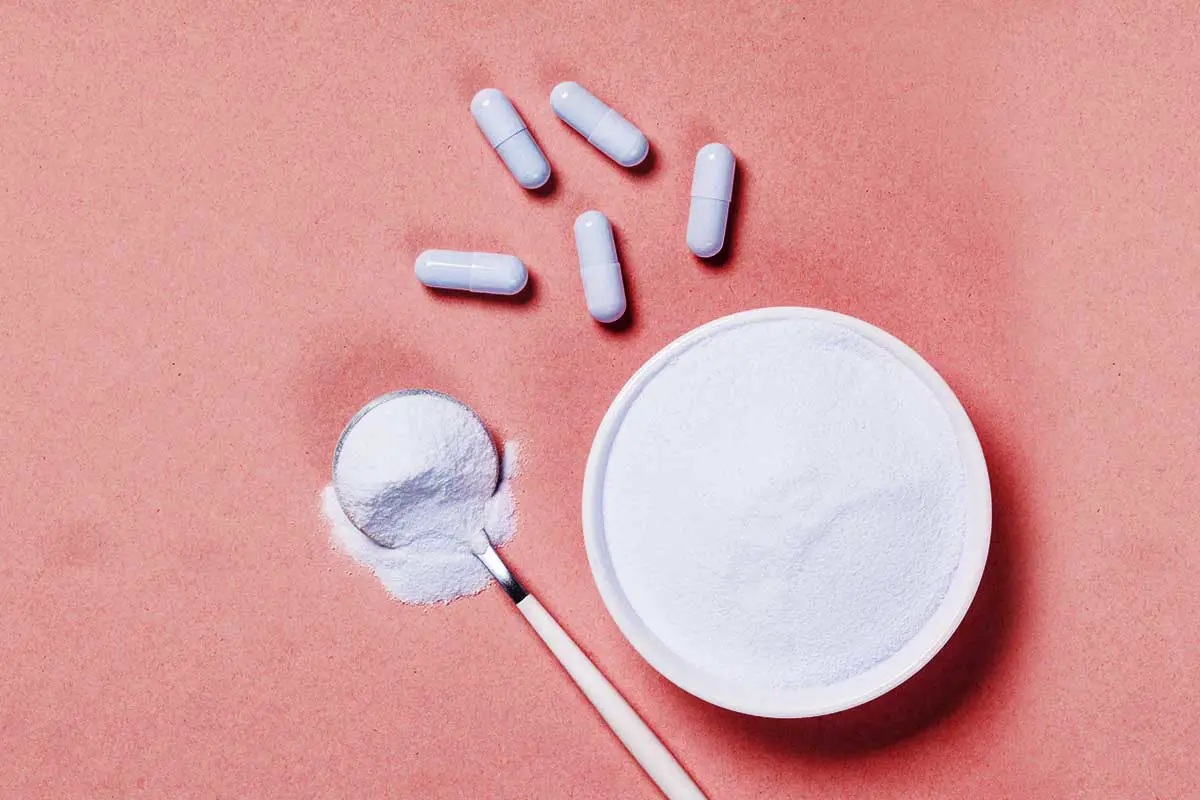Do You Need to Add Creatine to a Carnivore Diet? Waste of Money?

As an Amazon Associate we earn from qualifying purchases made on our website. If you make a purchase through links from this website, we may get a small share of the sale from Amazon and other similar affiliate programs. You can read our complete legal information for more details. By using this site, you agree the information contained here is for informational purposes only. For specific medical questions, consult your doctor. NO information on this site should be used to diagnose, treat, prevent or cure any disease or condition.
As with anything in life, context is everything. Does everyone on a carnivore diet need to add creatine to their diet… NO!
Will it benefit some people in the short term, or if you have specific sports performance or muscle-building goals…probably!
What is the carnivore diet?
The carnivore diet has exploded in recent years, it is still a niche diet, but it punches above its weight class.
It seems to do everything you need from it. If you want to lose weight, you can potentially lose weight. If you want to put on muscle, you can put on muscle with a proper workout routine.
It has also been anecdotally linked to stop and reverse a ton of diseases under the sun. If you do not believe me, just check out all the success stories on Meat RX.
The carnivore diet is a principle and a lifestyle rather than one strict plan to follow; you can ask 100 people how they eat on a carnivore diet. Some will say they only eat ribeye steaks and drink water; some people will eat beef, lamb, chicken, pork, and dairy.
The carnivore diet is about real people finding real health, and at its core, you simply eat animal products and avoid plant food.
If you are completely new to the carnivore diet, start by picking up this easy-to-read and understand book by Dr. Shawn Baker called “The Carnivore Diet.”
Real quick, I do want to mention the other question we get a lot is, “what’s up with protein supplementation on a carnivore diet?” We discuss protein powder in this link here.
What is creatine?
Creatine is a non-protein amino acid, which is mainly found in cardiac and skeletal muscle. (1)
It binds with phosphate and is stored in your muscles. Suppose you require a quick burst of explosive energy, for example, if you are doing a heavy deadlift or are making a 100m sprint.
Then the phosphate is split off to create a burst of energy (ATP).
Weight lifting and sprinting have been shown to deplete ATP; therefore, it increases the body’s demand for creatine.
Is creatine essential?
Creatine is not essential, as your body can produce it. However, your body can and will absorb creatine efficiently, which isn’t always the case with other supplements. You’ve probably heard the saying, “supplements are just expensive pee.”
Weight lifters and sprinters have been the primary users of creatine as it has been proven to help with the act of high-intensity exercise and your recovery after such workouts.
High levels of creatine in the body have also been shown to help cognitive performance, longevity and may slow muscle diseases. (2)(3)
However, creatine does not seem to help with aerobic endurance, but it certainly does not harm it. (4)
So far, creatine has been shown to be a safe (when using recommended amounts) and cheap supplement with proven results.
Per WebMD, “…it hasn’t been well-studied over the long term. Researchers still aren’t sure what effects it might have on the body, although there is evidence that in the short term, creatinine is safe for high-intensity resistance training.”

How much creatine do you need?
There are no recommended daily allowances for creatine.
So, we will take that as an example; if you were on any diet and wanted to start building muscle, you would probably be recommended to take upwards of 25 grams per day for a week, known as a loading phase. (Yet, some people claim the loading phase is unnecessary.)
This is designed to top up your creatine levels to the max amount that can be held.
Then you will likely be recommended to take around 5-6g per day for as long as you want. This is known as a maintenance phase and is designed to replace what you have used that day so that your creatine stores stay topped up.
Personally, as a carnivore dieter, I don’t do a loading phase.
What creatine do I use, you may ask? Well, I was recommended by Dave Asprey of Bulletproof that Jarrow Formulas creates high-quality creatine, so that’s the one I have been using on and off for the past 5 years or so.
They recommend 6 grams per day but also say that you should consult your health care professional before taking more than that.
What do I mix it with? Well, I use water, and a premixed electrolyte powder by Redmond Real Salt called Re-Lyte. They have a carnivore diet-approved “Raw” version without sweetener and a more keto-style version that is flavored.
The cool thing is that they give our readers a 15% off discount with this link or use the coupon code “Wild” at checkout.
(We also have this list of potentially beneficial supplements while on a carnivore diet.)
For me, this combo of creatine and electrolytes has been working out great! However, if you are looking to stick to a pure carnivore diet, let’s look at your creatine-heavy options.
Best dietary sources of creatine
- Beef
- Lamb
- Pork
- Herring
- Salmon
- Chicken
- Cod
- Game
- Tuna
- Black pudding
This link to Quinnipiac University has a specific breakdown of creatine amounts found in different meat if you want to get more scientific.
Creatine is only found in animal tissue; it does not exist in plant-based food. Therefore, vegans and vegetarians are going to struggle to get high levels of stored creatine without supplementation.
However, they will likely say, “who cares, it is widely available as a supplement, and as you have pointed out, it is not essential!”

How much creatine can you get from a carnivore diet?
So, let’s presume having top-up stores of creatine is a good thing for specific performance goals, but also for longevity and general good health.
Can you really keep your creatine levels topped up by building up your stores to the max and then maintaining these high levels through the carnivore diet alone?
I would say most people eat between 1.5 pounds and 2.5 pounds of animal products per day on a carnivore diet, and I would think it is fair to say most of this meat will be ruminant meat like beef.
So, for argument’s sake, you ate 2 pounds of ribeye per day, and that is pretty much it apart from maybe some eggs and bacon.
There is some debate on how much creatine is in beef; the general consensus is that it will have between 1.4 to 2.3 grams per pound.
Therefore, for argument’s sake, if you are eating 2 pounds of beef a day, you will be getting around 4g of creatine.
You could hypothesize that the carnivore diet is enough to maintain levels but maybe not sufficient enough to build up your stores.
The challenge is that there are no scientific studies on creatine during a carnivore diet.
Oh yeah, people always assume you need to add carbs for sports performance and muscle building which we cover in this popular article:
Final thoughts
If you consider creatine to be important, then because the best sources of dietary creatine are found in meat and seafood… you can essentially say the carnivore diet is the best diet for high levels of creatine because all you basically eat is meat and seafood!
Check out our Wild Lumens YouTube channel, where we have meaty content and carnivore diet recipes to help you on your journey! We also recommend getting a very adorable carnivore diet coach over at MeatRX.
And, of course, I always recommend “The Carnivore Diet” by Dr. Shawn Baker.
Disclaimer: I’m not a doctor or dietician, or nutritionist. Consult with and ask your doctor about any diet or medical-related questions. No information on this site should be used to diagnose, treat, prevent, or cure any disease or condition.
Resources:
- Journal of the International Society of Sports Nutrition: International Society of Sports Nutrition position stand: safety and efficacy of creatine supplementation in exercise, sport, and medicine
- Effects of creatine supplementation on cognitive function of healthy individuals: A systematic review of randomized controlled trials
- Creatine for treating muscle disorders
- Effect of creatine supplementation on aerobic performance and anaerobic capacity in elite rowers in the course of endurance training



